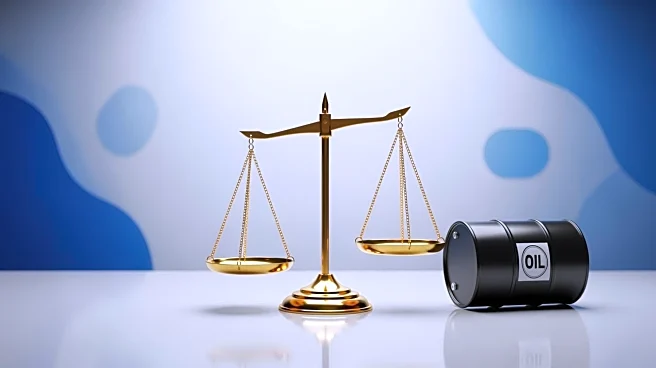What's Happening?
President Trump has announced that Indian Prime Minister Narendra Modi assured him that India would cease purchasing Russian oil. This claim comes amidst ongoing U.S. efforts to pressure Russia economically due to the conflict in Ukraine. India, a significant
importer of Russian fossil fuels, has been negotiating trade terms with the U.S., but has resisted opening its markets to American dairy and agriculture. Despite Trump's assertion, Indian officials have not confirmed any agreement to halt Russian oil imports, and discussions on energy cooperation between the two nations are reportedly ongoing.
Why It's Important?
India's role as a major importer of Russian oil is crucial in the global energy landscape, particularly as the U.S. seeks to isolate Russia economically. The potential cessation of Indian imports could significantly impact Russia's oil revenue and influence the dynamics of the Ukraine conflict. For the U.S., securing India's cooperation is vital for its broader geopolitical strategy against Russia. However, India's reluctance to fully comply with U.S. demands reflects the complexities of international trade negotiations and the balancing of domestic economic interests with foreign policy objectives.
What's Next?
The situation remains uncertain as India has not officially confirmed any changes to its oil import policies. The U.S. may continue to apply diplomatic pressure on India to align with its sanctions against Russia. Meanwhile, India will likely weigh its energy security needs against the benefits of deepening ties with the U.S. The outcome of these negotiations could have far-reaching implications for global energy markets and diplomatic relations, particularly if India decides to reduce its reliance on Russian oil.
Beyond the Headlines
This development highlights the intricate balance countries must maintain between economic interests and geopolitical alliances. India's strategic position between the U.S. and Russia exemplifies the challenges faced by nations in navigating international pressures while safeguarding domestic priorities. The situation also raises broader questions about the effectiveness of economic sanctions and the role of energy diplomacy in shaping global political landscapes.















